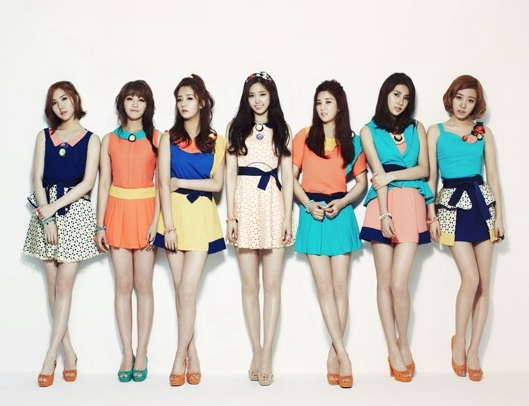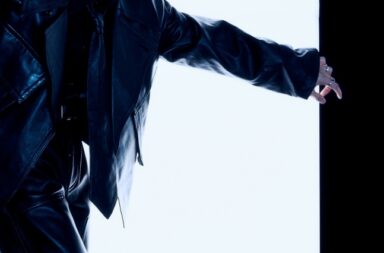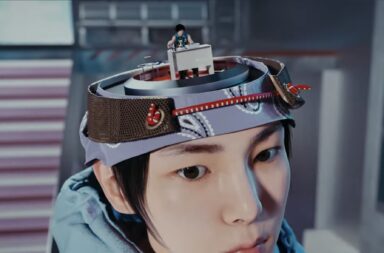 What does an idol do? The obvious answer would be that they sing, but fans are only too aware of how much more there is to idoldom. For one, there’s the dancing, the CFs, fashion shoots and interviews. Idols will also branch out into other areas like acting in dramas and/or musicals, or becoming a MC. There is a wide range of paths available for an idol to pursue, and more often than not they will find one that suits their talent and interests, and thus become more able to fulfil the aim of their industry: to entertain, because that is their raison d’être. An idol is an entertainer–entertaining is what idols do.
What does an idol do? The obvious answer would be that they sing, but fans are only too aware of how much more there is to idoldom. For one, there’s the dancing, the CFs, fashion shoots and interviews. Idols will also branch out into other areas like acting in dramas and/or musicals, or becoming a MC. There is a wide range of paths available for an idol to pursue, and more often than not they will find one that suits their talent and interests, and thus become more able to fulfil the aim of their industry: to entertain, because that is their raison d’être. An idol is an entertainer–entertaining is what idols do.
The most common piece of career advice (in Western societies) given is to find something that one enjoys and is good at, and to stick with it. But reality never quite works that way, and every field of work has a minority of people who are just not matched to the job they find themselves in–and the same applies for the idol industry.
 Though he is my ultimate K-pop bias, I cannot deny that SHINee‘s Minho is one such idol. While his deep voice helps liven up SHINee songs and makes his band an odd-numbered group favoured for choreography formations, he is nevertheless considered the weakest link in SHINee and is constantly referred to as a “black hole of talent.” This description is highly inaccurate, because the fact is that Minho is not untalented–it’s that his talents lie elsewhere. In an appearance on KBS‘ Sang Sang Plus, Minho told of his passion for soccer and desire to become a professional player. His father, though, did not approve. As a former professional soccer player currently working as a coach, Choi Yoon-gyeom (pictured right) knew very well the dangers of serious injury associated with professional sport, among other issues, and thus discouraged his son from pursuing that career path (imagine his surprise at Minho deciding to instead become an idol, after being cast by SM in 2006).
Though he is my ultimate K-pop bias, I cannot deny that SHINee‘s Minho is one such idol. While his deep voice helps liven up SHINee songs and makes his band an odd-numbered group favoured for choreography formations, he is nevertheless considered the weakest link in SHINee and is constantly referred to as a “black hole of talent.” This description is highly inaccurate, because the fact is that Minho is not untalented–it’s that his talents lie elsewhere. In an appearance on KBS‘ Sang Sang Plus, Minho told of his passion for soccer and desire to become a professional player. His father, though, did not approve. As a former professional soccer player currently working as a coach, Choi Yoon-gyeom (pictured right) knew very well the dangers of serious injury associated with professional sport, among other issues, and thus discouraged his son from pursuing that career path (imagine his surprise at Minho deciding to instead become an idol, after being cast by SM in 2006).
Even in his idol career, Minho has always been known for his athletic ability, seen at the annual idol athletics, Dream Team and now in his current drama To The Beautiful You. He’s also known for his ultra-competitive spirit, which has led to a few mini-tantrums when things haven’t quite gone his way (The one he had during his latest appearance on Running Man is an example). In fact, while his drive, determination and fighting spirit is admirable, Minho often focuses on the actual competition rather than the reason behind it–entertainment. These shows are broadcast on TV for the merriment of the viewer, and sometimes winning alone isn’t enough–people want to see funny interactions and memorable incidents, not a straight-up race or game: they can just watch an actual game for that. People may find the fits he has after a loss entertaining, but it also casts Minho in a negative light–K-pop fans have never hesitated to tell me about how they think Minho is a sore loser. Though Minho is not incapable of compassion and does care for others, all of that seems to fly out the window when there’s a competition. All in all, Minho is a born athlete who could have potentially excelled at any sport, and should have never been an idol. Minho might have still been considered a poor sport, but at least his talents would have been put to good use doing something he obviously loves.
Of course, Minho is not the only one in a career that doesn’t quite fit. Dara was originally chosen to join YG as a actress, but her will and determination allowed her to wear her CEO down enough to allow her to as an idol instead, while an unnamed SB writer finds the inclusion of half of the members of A Pink as idols to be puzzling. Weak voices, sloppy dancing, poor acting and/or bland personalities are the death of entertainers, and such idols are often labelled by fans as “black holes of talent.” Though there is a mismatch between the person and the occupation, these idols continue to debut.
So, it is only natural to wonder why such idols are able to join a company, join the industry. If they are not capable of being entertainers, then why are they here? After thinking this through, I’ve put together a list of possible reasons why Minho, and other “black holes” enter idoldom when they are not cut out for it, or would be better suited for some other field.
 As aforementioned, idols are able to segue into a variety of different industries once they have established themselves as an idol: acting roles are easier to procure, as are places in musicals. Recent comments for the latest Seoulbeats Exchange told of Eunjung being an actress before joining T-ara, and she was in fact a child actress with minor roles in a few dramas. Since T-ara’s debut, Eunjung has been taking on larger and larger roles, with a star turn in Dream High and recently playing the titular character in Queen In-soo. In fact, many aspiring actors and actresses follow the idol route as a shortcut to getting drama roles–considering that idols often take on roles that would have gone to these rookie actors, the adage “if you can’t beat ’em, join ’em” is very apt. Eunjung’s band-mate Jiyeon’s role in Dream High 2 focused largely on this matter, as her character was encouraged to become an idol as a way to advance her dream of acting. Essentially, idoldom can serve as a shortcut to the good life of fame and money (with some influence thrown in), and this short can be very tempting for a lot of young people to take up.
As aforementioned, idols are able to segue into a variety of different industries once they have established themselves as an idol: acting roles are easier to procure, as are places in musicals. Recent comments for the latest Seoulbeats Exchange told of Eunjung being an actress before joining T-ara, and she was in fact a child actress with minor roles in a few dramas. Since T-ara’s debut, Eunjung has been taking on larger and larger roles, with a star turn in Dream High and recently playing the titular character in Queen In-soo. In fact, many aspiring actors and actresses follow the idol route as a shortcut to getting drama roles–considering that idols often take on roles that would have gone to these rookie actors, the adage “if you can’t beat ’em, join ’em” is very apt. Eunjung’s band-mate Jiyeon’s role in Dream High 2 focused largely on this matter, as her character was encouraged to become an idol as a way to advance her dream of acting. Essentially, idoldom can serve as a shortcut to the good life of fame and money (with some influence thrown in), and this short can be very tempting for a lot of young people to take up.
 To combat this problem, President Lee (pictured right, visiting a high school) has advised his country’s youth to consider forgoing university altogether and instead consider alternative pathways, like attending a vocational college, as well as to encourage companies to hire more school leavers, which they have in fact done: Samsung is said to have hired 700 high school graduates this year. So, with the value of a degree seemingly diminishing in value, it makes sense that other options should be considered with regards to one’s livelihood. And why can’t becoming an idol be one such option? After all, idols are often recruited before they’ve even finished high school and their training costs are not up-front; in fact, because companies have invested in their trainees, they will be more likely to debut them than not in an effort to recoup their investment, so there is a greater chance of being able to work as an idol. Youth from poorer backgrounds, and their families, may find an offer from a company too good to pass up due to the fact that most costs are not up-front, unlike fees for tertiary institutions.
To combat this problem, President Lee (pictured right, visiting a high school) has advised his country’s youth to consider forgoing university altogether and instead consider alternative pathways, like attending a vocational college, as well as to encourage companies to hire more school leavers, which they have in fact done: Samsung is said to have hired 700 high school graduates this year. So, with the value of a degree seemingly diminishing in value, it makes sense that other options should be considered with regards to one’s livelihood. And why can’t becoming an idol be one such option? After all, idols are often recruited before they’ve even finished high school and their training costs are not up-front; in fact, because companies have invested in their trainees, they will be more likely to debut them than not in an effort to recoup their investment, so there is a greater chance of being able to work as an idol. Youth from poorer backgrounds, and their families, may find an offer from a company too good to pass up due to the fact that most costs are not up-front, unlike fees for tertiary institutions.
 Okay, that’s not what they say, but it’s more or less the reason why young people are approached by scouts. Though idol hopefuls are able to try out for companies via open auditions, the majority of trainees are usually cast pretty much off the street–potential idols to the company, where camera tests and displays of talent such as singing or dancing are sought to gauge that person’s skills and potential, and then if the company is satisfied, be offered a contract. SM Entertainment is a company notorious for street casting: they found Super Junior‘s Siwon on his way to school and Exo-M‘s Lu Han while he was out shopping. When TVXQ‘s Changmin, who was scouted while playing badminton, was asked to dance at his audition, he clapped like a soldier instead, while Minho got through a video test because he started laughing when told to put on a serious expression
Okay, that’s not what they say, but it’s more or less the reason why young people are approached by scouts. Though idol hopefuls are able to try out for companies via open auditions, the majority of trainees are usually cast pretty much off the street–potential idols to the company, where camera tests and displays of talent such as singing or dancing are sought to gauge that person’s skills and potential, and then if the company is satisfied, be offered a contract. SM Entertainment is a company notorious for street casting: they found Super Junior‘s Siwon on his way to school and Exo-M‘s Lu Han while he was out shopping. When TVXQ‘s Changmin, who was scouted while playing badminton, was asked to dance at his audition, he clapped like a soldier instead, while Minho got through a video test because he started laughing when told to put on a serious expression 


